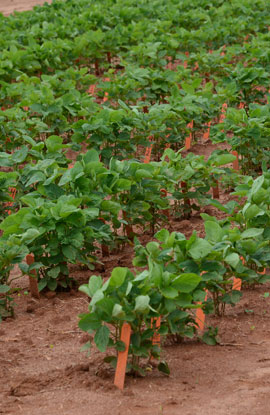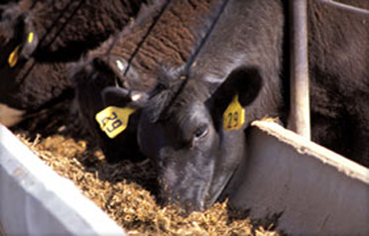Research

The soy checkoff invests a substantial portion of its budget every year in production research. Researchers in the public sector as well as breeders at private companies agree that there is value in the checkoff’s research accomplishments. These projects and relationships that the checkoff fosters between the public and private sectors are critical to developing new technology that benefits farmers.
Improving New Jersey production
As soybean farmers, the directors of the New Jersey Soybean Board understand production challenges unique to the state, and the board works to address those challenges. Partnering with local researchers allows the New Jersey Soybean Board to efficiently improve soybean production and focus on production issues specific to New Jersey soybean farmers.
2024 New Jersey soy checkoff-funded research
State Regulatory, Environmental, and Technical Support – Northeast
NJSB recognizes that biodiesel is an important market for soybean farmers. NJSB is providing funding to assist the efforts of Clean Fuels Alliance America to ensure that staff from state regulatory agencies and professional environmental organizations have access to accurate information about biodiesel. This will help create and strengthen the biodiesel market while providing smooth implementation processes in Northeast states and municipalities.
Survey and monitoring of Mexican Bean Beetle Population in Soybeans in Central and Southern NJ, for the purpose of Biological Control Using Laboratory Reared Parasitic Wasp and Survey for the Spotted Lantern Fly and Brown Marmorated Stink Bug and the Kudzu Bug in Central and Southern NJ Soybeans.
New Jersey soybeans have been threatened in recent years by an explosion in the Mexican bean beetle population and could soon be facing additional stress by brown marmorated stink bugs and kudzu bugs. Alexandra Gillett, a Research Scientist with the New Jersey Department of Agriculture, proposes (1) survey and monitor Mexican bean beetle (MBB) in soybeans in Central and Southern NJ, (2) release the parasitoid wasp, Pediobius foveolatus, as a biocontrol agent in order to suppress MBB, (3) survey for Spotted Lanterfly, Brown marmorated stink bug, and kudzu bug in Central and Southern NJ soybeans. Using the parasitoids has resulted in an estimated savings of $1.2 million (in 2010 dollars) in insecticide costs for the soybean farmers every year since 1981. There has been a significant decline in the MBB population since the 1980’s.
WISHH: ASA/WISHH Program – FY24 Finding and Opening Up New US Soy Overseas Markets
WISHH aims to ultimately expand the number of New Jersey and US soy international markets beyond those we have today by positioning our state and other US soy as a vital ingredient for commercial feed and food manufacturers to use to solve their developing and emerging countries’ protein and food supply challenges. Brand-new US soy trade has taken root in WISHH counties over the last 10 years. Containerized soybean meal and soy protein ingredient exports into WISHH program countries grew at a compound annual growth rate of 7.51%. Finding and opening up new US soy markets is critical to New Jersey soybean Farmers’ future profits. New export markets spread soybean farmers export risk across more destinations, impact soybean prices, serve as a strategy to lessen the effect of warning demand in mature US soy markets, as well as mitigate trade disruptions.



